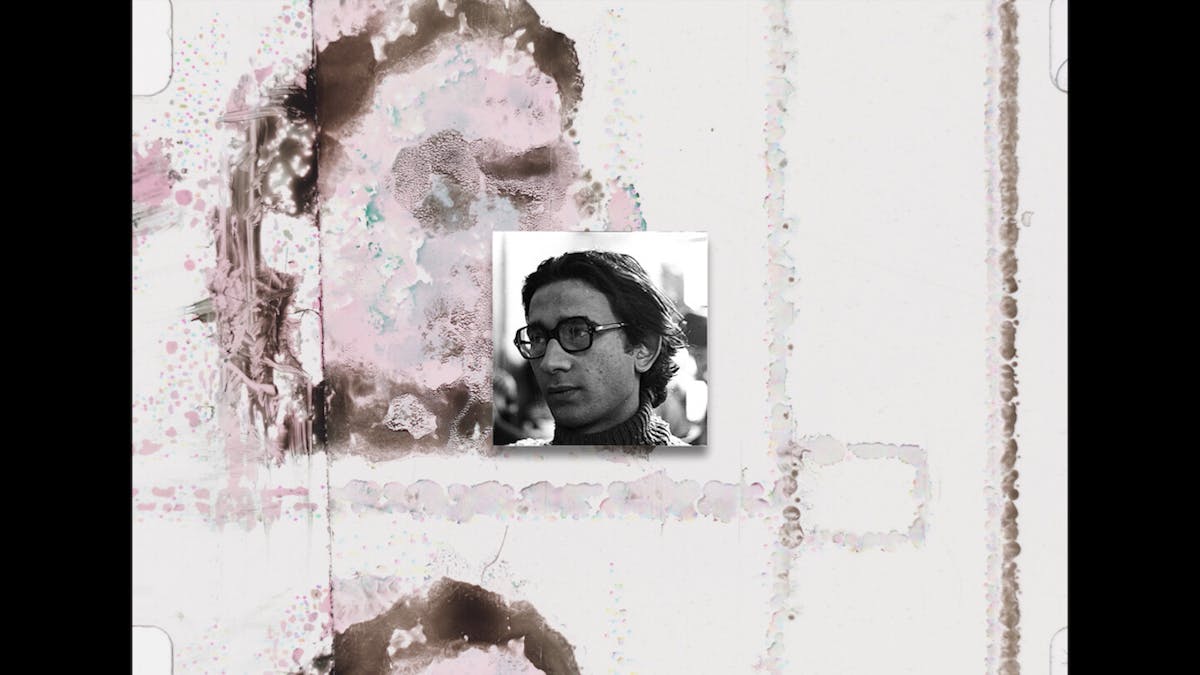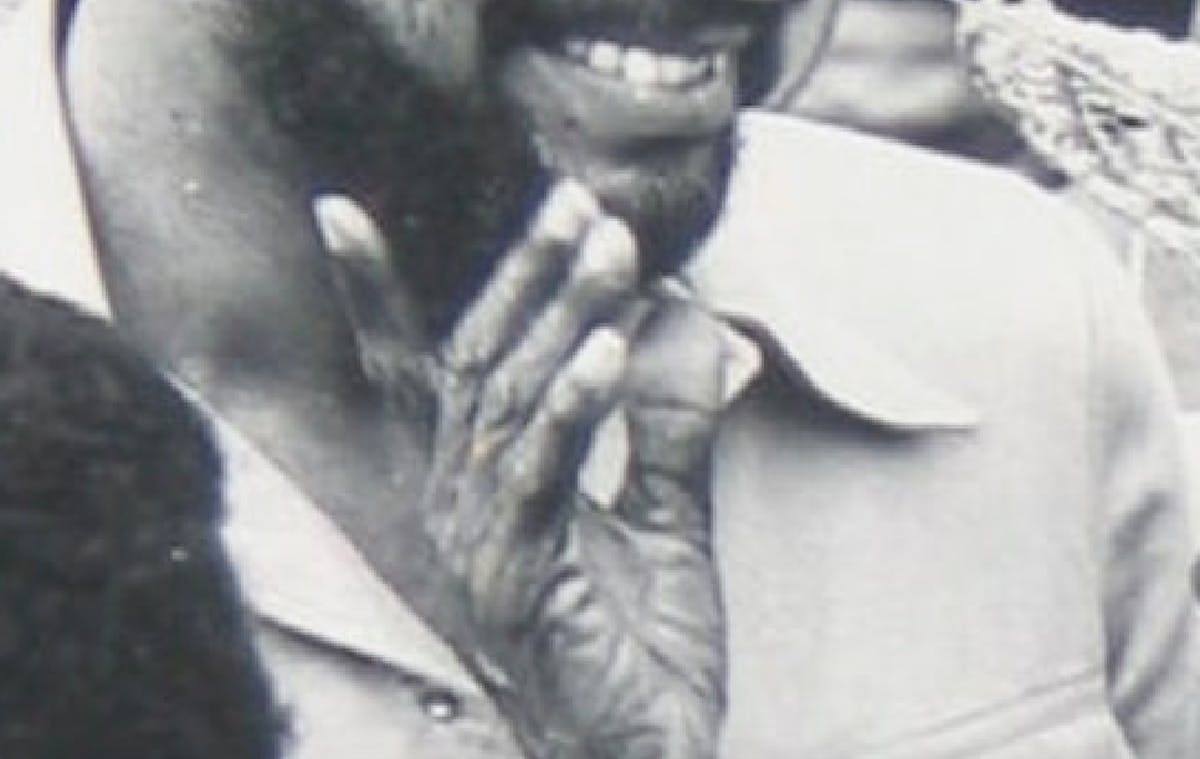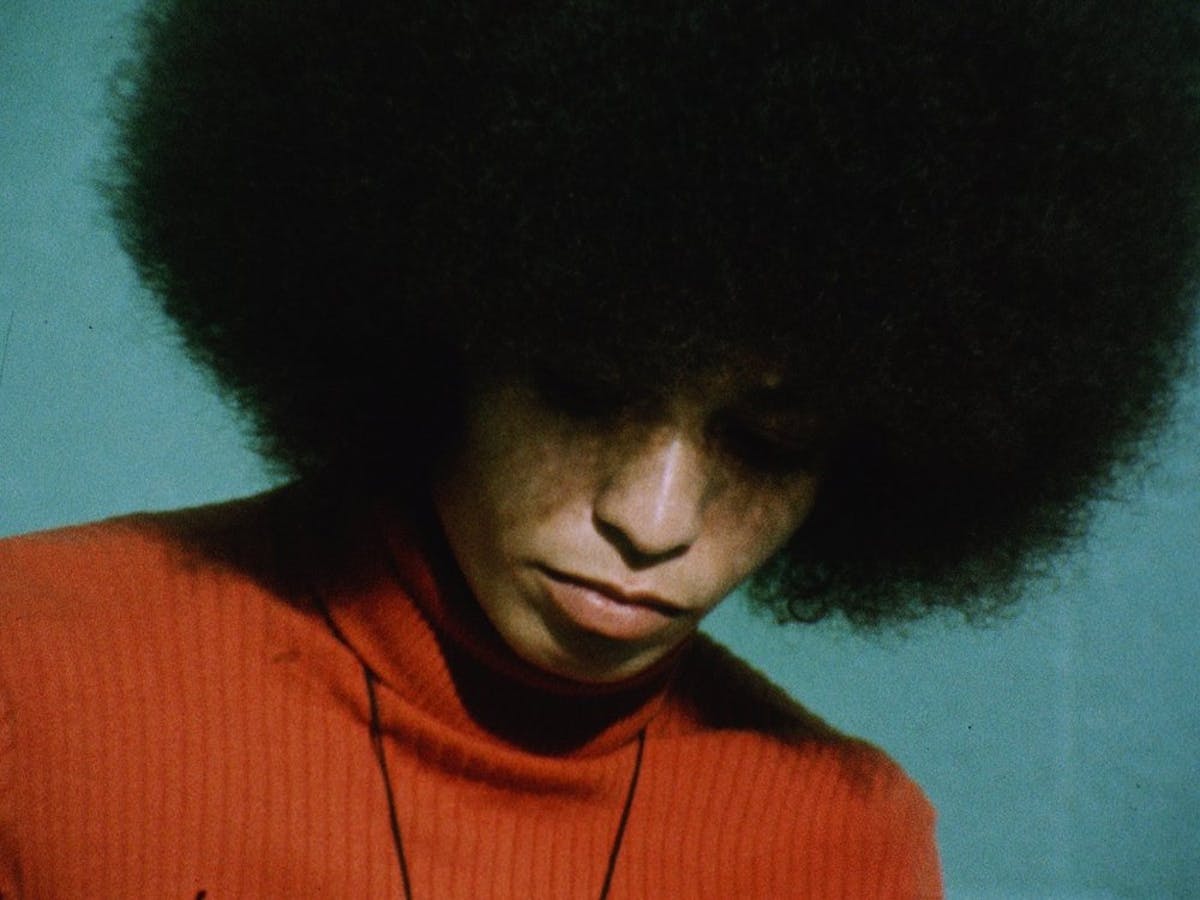Suneil Sanzgiri invites us to think about locatedness and visibility in his short film Letter From Your Far-Off Country (2020). A meditation on diaspora, history, ruin and anti-caste protest in India, the film gathers together a multiplicity of voices. The work of poet Agha Shahid Ali is introduced early into this chorus of voices, with a letter written to himself as if by another person located in Kashmir (Ali was a Kashmiri American Muslim). We also see the Shaheen Bagh protests, initiated in 2019 and led by Muslim women against the Citizenship Amendment Act, in addition to images of political playwright Safdar Hashmi and B. R. Ambedkar, a campaigner for Dalit rights and architect of the Constitution of India. The film slip-slides between clarity and blurring of place and voice. At points, position is clearly located, for example through a discussion of origin of the family name Sanzgiri. At other times the film disorientates and resists a static positioning, either through the pace at which multiple voices present themselves or the constant switch of attention between text, image and sound. For example, the film tells us that ‘giri’ means ‘mountain’ alongside the image of a digital rendering of a mountain. In a disorientation, the perspective migrates to the mountain’s underside as if we are traversing google maps. This moment exposes the artifice of the rendering, going to the edge of its digital limits to reveal a series of tessellating triangles beyond what is supposed to be visible. A dislocation without relocation means alienation or death. Letter From Your Far-Off Country is not an education, it doesn’t serve as an explanation to a certain set of events or histories. Rather it states its position from a passionate and empathetic point of view, often told through cultural practice. (See for example the speech made by actress Shabana Azmi, using the platform of the International Film Festival of India in 1989 to bring awareness to the murder of Safdar Hashmi).







